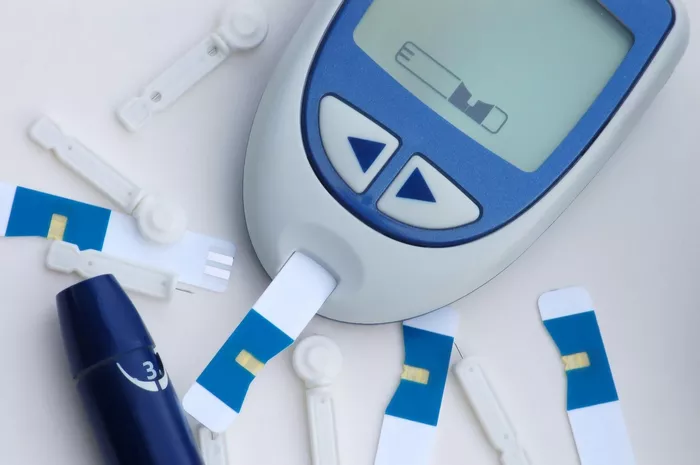Gestational diabetes mellitus (GDM) is a type of diabetes that develops during pregnancy and typically resolves after childbirth. However, its implications extend beyond the immediate postpartum period, affecting both the mother and the child in various ways. Understanding the potential consequences of gestational diabetes is crucial for managing the condition effectively and minimizing long-term risks.
Understanding Gestational Diabetes
Gestational diabetes occurs when the body cannot produce enough insulin to meet the increased needs during pregnancy. This results in elevated blood glucose levels, which can pose risks to both the mother and the baby. Gestational diabetes usually develops in the second or third trimester and is diagnosed through glucose tolerance tests.
Risk Factors for Gestational Diabetes
Certain factors increase the risk of developing gestational diabetes, including:
Obesity: Excess body weight is a significant risk factor.
Age: Women over the age of 25 are at a higher risk.
Family History: A family history of diabetes can increase the likelihood.
Ethnicity: Certain ethnic groups, including African American, Hispanic, and Asian, are at higher risk.
Previous Gestational Diabetes: A history of GDM in a previous pregnancy increases the risk.
Potential Complications for the Mother
Gestational diabetes can lead to several complications for the mother, both during pregnancy and postpartum.
1. Increased Risk of Developing Type 2 Diabetes
Women with gestational diabetes are at a higher risk of developing type 2 diabetes later in life. The risk persists even after the condition resolves post-delivery.
Long-Term Monitoring: Women with a history of GDM should undergo regular glucose screening to detect type 2 diabetes early.
Lifestyle Modifications: Adopting a healthy diet and regular exercise can help reduce the risk of type 2 diabetes.
2. Preeclampsia
Preeclampsia is a serious pregnancy complication characterized by high blood pressure and damage to organs such as the kidneys.
Symptoms: Symptoms include swelling of the hands and face, headaches, and visual changes.
Management: Managing blood sugar levels can help reduce the risk, but preeclampsia may still occur. Early detection and treatment are crucial.
3. Increased Risk of Cesarean Section
Gestational diabetes can lead to complications that increase the likelihood of a cesarean delivery.
Reasons for Cesarean Section: These include fetal distress, macrosomia (large baby), and difficulty in labor.
Recovery: Women undergoing a cesarean section may experience longer recovery times and increased risk of infection.
4. Postpartum Hemorrhage
Women with gestational diabetes may face a higher risk of postpartum hemorrhage, a condition characterized by excessive bleeding after childbirth.
Monitoring: Postpartum monitoring is essential to manage and address bleeding issues promptly.
Potential Complications for the Baby
Gestational diabetes can significantly affect the health of the baby, both during and after pregnancy.
1. Macrosomia
Macrosomia refers to a baby born with an excessive birth weight, often due to high glucose levels in the mother.
Risk Factors: Babies of mothers with GDM are at increased risk of being larger than average.
Complications: Macrosomia can lead to difficulties during delivery and increase the risk of shoulder dystocia (difficulty delivering the baby’s shoulders).
2. Neonatal Hypoglycemia
Newborns of mothers with gestational diabetes may experience low blood sugar levels, a condition known as neonatal hypoglycemia.
Symptoms: Symptoms can include jitteriness, lethargy, and feeding difficulties.
Treatment: Prompt treatment with glucose or feeding can resolve hypoglycemia, but monitoring is essential.
3. Respiratory Distress Syndrome
Babies born to mothers with gestational diabetes are at risk of respiratory distress syndrome, a condition where the baby’s lungs are not fully developed.
Symptoms: Symptoms include rapid breathing, grunting, and cyanosis (bluish skin color).
Management: Supportive care in a neonatal intensive care unit (NICU) may be required.
4. Increased Risk of Obesity and Type 2 Diabetes
Children born to mothers with gestational diabetes are at a higher risk of developing obesity and type 2 diabetes later in life.
Long-Term Monitoring: Regular check-ups and a healthy lifestyle are crucial for managing long-term risks.
Long-Term Implications for the Mother
The impact of gestational diabetes extends beyond pregnancy, influencing long-term health outcomes for the mother.
1. Increased Risk of Cardiovascular Disease
Women with a history of gestational diabetes are at an increased risk of developing cardiovascular disease.
Factors: The risk is associated with high blood pressure, cholesterol levels, and insulin resistance.
Prevention: Regular cardiovascular health screenings and lifestyle changes can help mitigate risks.
2. Mental Health Concerns
The stress and complications associated with gestational diabetes can affect mental health, leading to issues such as anxiety and depression.
Support: Psychological support and counseling can be beneficial for managing mental health concerns.
Long-Term Implications for the Baby
The potential long-term implications for the baby born to a mother with gestational diabetes are significant.
1. Increased Risk of Metabolic Syndrome
Children born to mothers with gestational diabetes are at a higher risk of developing metabolic syndrome, a cluster of conditions including obesity, high blood pressure, and insulin resistance.
Monitoring: Regular health check-ups and lifestyle interventions are important for managing metabolic syndrome.
2. Developmental Delays
There is a potential for developmental delays and learning difficulties in children born to mothers with gestational diabetes.
Early Intervention: Early developmental assessments and interventions can help address any delays.
Preventive Measures and Management
Managing gestational diabetes effectively can reduce the risk of complications for both mother and baby. Here are some strategies:
1. Healthy Diet and Nutrition
Balanced Diet: A diet rich in vegetables, lean proteins, and whole grains can help manage blood sugar levels.
Meal Planning: Working with a dietitian to create a personalized meal plan can be beneficial.
2. Regular Physical Activity
Exercise: Regular physical activity helps improve insulin sensitivity and manage blood sugar levels.
Guidance: Consult with a healthcare provider to develop a safe exercise plan during pregnancy.
3. Blood Sugar Monitoring
Regular Checks: Frequent blood glucose monitoring is essential for managing gestational diabetes effectively.
Medication: In some cases, insulin or other medications may be required to maintain blood sugar control.
4. Prenatal Care
Regular Visits: Regular prenatal visits allow for monitoring and managing gestational diabetes and its potential complications.
Collaboration: Work closely with healthcare providers, including obstetricians, endocrinologists, and dietitians.
See also: What Level of Blood Sugar Is Dangerous During Pregnancy?
Conclusion
Gestational diabetes is a serious condition with potential implications for both the mother and the baby. While it often resolves after childbirth, the risks associated with gestational diabetes can have long-term effects. Understanding these risks and implementing effective management strategies is crucial for minimizing complications and ensuring the health and well-being of both mother and child.
By adhering to preventive measures, seeking regular medical care, and making lifestyle changes, individuals can better manage gestational diabetes and reduce the likelihood of long-term health issues. Continued research and education are essential for improving outcomes and providing support for those affected by this condition.
Related topics:
What Helps Low Blood Sugar While Pregnant?

























